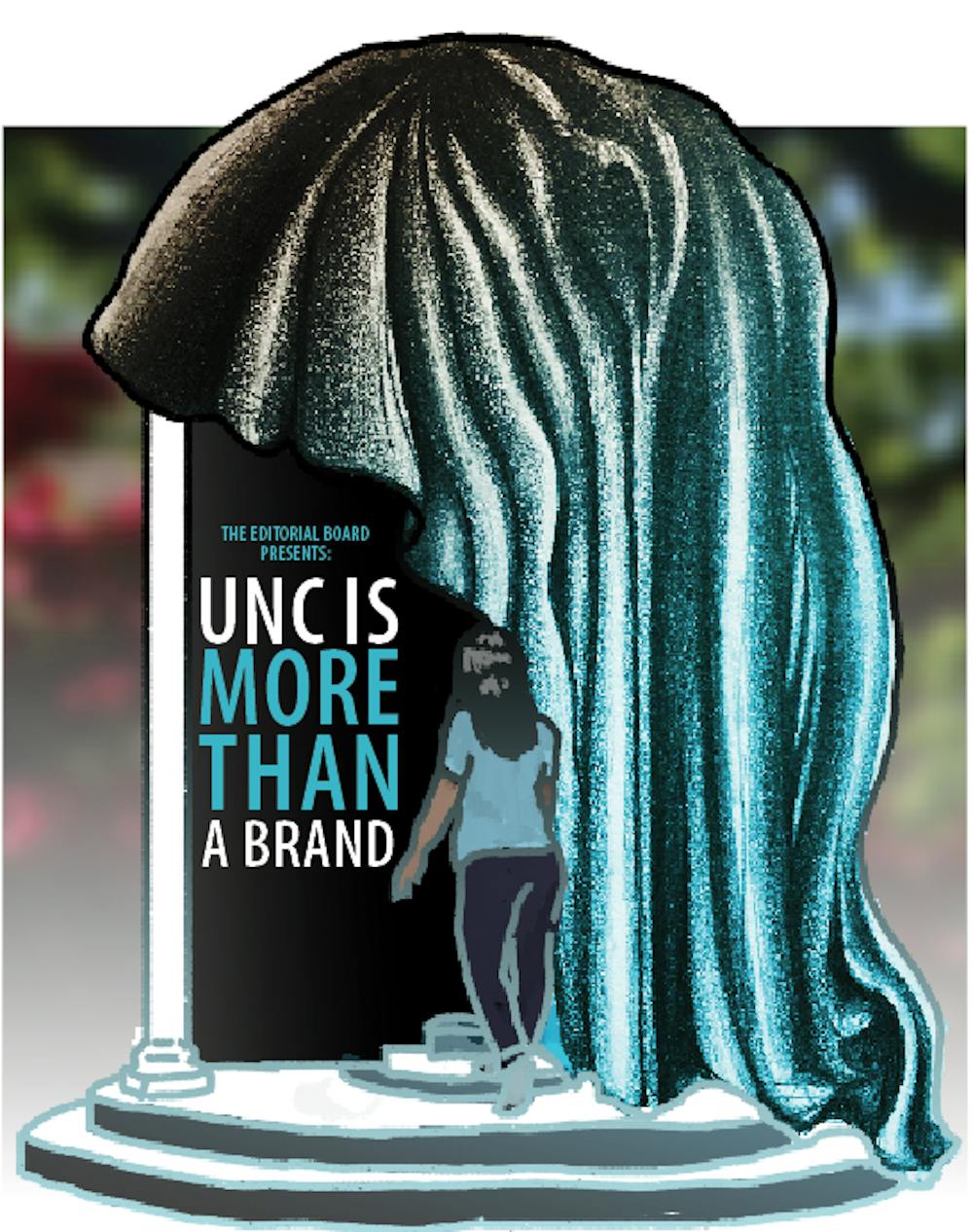When the contextualization exhibit at Hurston Hall was dedicated, Vice Chancellor for Student Affairs Winston Crisp said his hope is that the exhibit “will spur people to want to learn more about the history of not only this building but of the campus and of the area and of the region.” Learning requires critical thinking. It is in this critical spirit that this editorial is written.
Timing of actions reduced dialogue
The University continues to use its power to make major decisions swiftly, often at the end of the school year to avoid collective action by students. Perhaps the most obvious example is the privatization of Student Stores. The move was made in late April 2016, as students were studying for exams and preparing to leave campus for the summer, significantly curbing any possible protests. The University chose money over student wishes and the best interests of long-time employees in a swift decision. Privatization may have its benefits, but the way the decision was announced undermines potential positives.
Months later, during Winter Break, while students were at home, abroad or not paying attention to campus affairs, Crisp stepped over the barrier separating student governance and the administration when he sent out a letter forcibly splitting the student government up into graduate and undergraduate governing bodies. The drama between the two bodies had been interminable, and we understand the desire to end it. Yet Crisp’s letter undermined student self-governance in a time when students couldn’t respond.
The University continues to manage sexual assault behind closed doors. Despite the clear legal precedent and a requirement to release non-FERPA protected documents, the University refuses to release the names of people who have already been found responsible for sexual assault by the Title IX office, leading to the ongoing Daily Tar Heel lawsuit.
If someone wants to complain about these problems, they will quickly encounter the UNC public relations team. On principle, we have no issue with the existence of a PR department. The issue is that the current public relations goal — which we currently spend millions on — is seemingly to protect the UNC brand as if this University was a private business. The money spent on giving our image a glossy sheen could fund research, professors, staff or scholarships and, ultimately, help further the actual missions of this University. And trying to shield our University from public debate is antithetical to our University’s very mission — as a public institution of learning, community and discourse.
Communications lack conscience
The administration has increasingly suppressed student voice. In principle, the relationship between students and the administration ought be convivial and dialogic. In practice, the administration ignores student voice in favor of protecting the University’s image and economic viability. In light of an astonishing rise in hate crimes, the discriminatory travel ban, the deeply unsatisfactory House Bill 2 repeal, and continued student protest on racial, gender and sexual inequity, the strongest administrative stance to date concerned a cartoon urging students to punch literal Nazis.
Had the University taken similar harsh tones in response to other political extremism on campus, this board would have less room to criticize. But we can look at other instances, like when pro-Confederacy groups proudly waving a flag that once defended slavery came to campus in October 2015: A letter from Folt asked students to accept the organizers’ presence on campus. The pro-Confederate group Alamance County Taking Back Alamance County was welcomed to come onto this campus and make students feel threatened, and students were told to be respectful as it was the Carolina Way. Those pro-Confederates were extremists, just like those who created the cartoon. The only difference is that when conservatives are threatened, suddenly intimidation is decried.
We are not powerless
We have laid out our concerns. Years of silence, neutrality and abdication of responsibility have left the current administration adrift from those whose interests it claims to represent. It seems we as a University community have arrived at an identity crisis. We have put off choosing who we are for too long.
Maybe students would prefer attending college in a Southern Part of Heaven where nothing is wrong, or maybe they just don’t want to talk about it. We think most students want to engage with controversial topics and learn how to earnestly evaluate themselves and their University. And such students can only feel dismay when critiques of their University are answered with empty statements, little change and accusations of collegiate disloyalty.
To get the day's news and headlines in your inbox each morning, sign up for our email newsletters.
We believe this closed model of higher education is wrong and contradictory to the legacy of this University. We came to UNC to not only study and have fun, but also to learn from powerful leaders and professors willing to take a stand despite the consequences.
When the Wainstein report was released, Folt said “It’s a case where you have bad actions of a few and the inactions of many ... You need processes that protect integrity.”
We agree with the chancellor. The actions of a few happened before many of us were even born, but the inaction of many continues to haunt this University with no sign of stopping. If you think this is a problem, speak out. Use your voice, your money or alumni status, our letters to the editor section — whatever means you think is appropriate. This board has long said people make this University great, and it is the people who must protect academic freedom, student voices and integrity on UNC’s campus.




